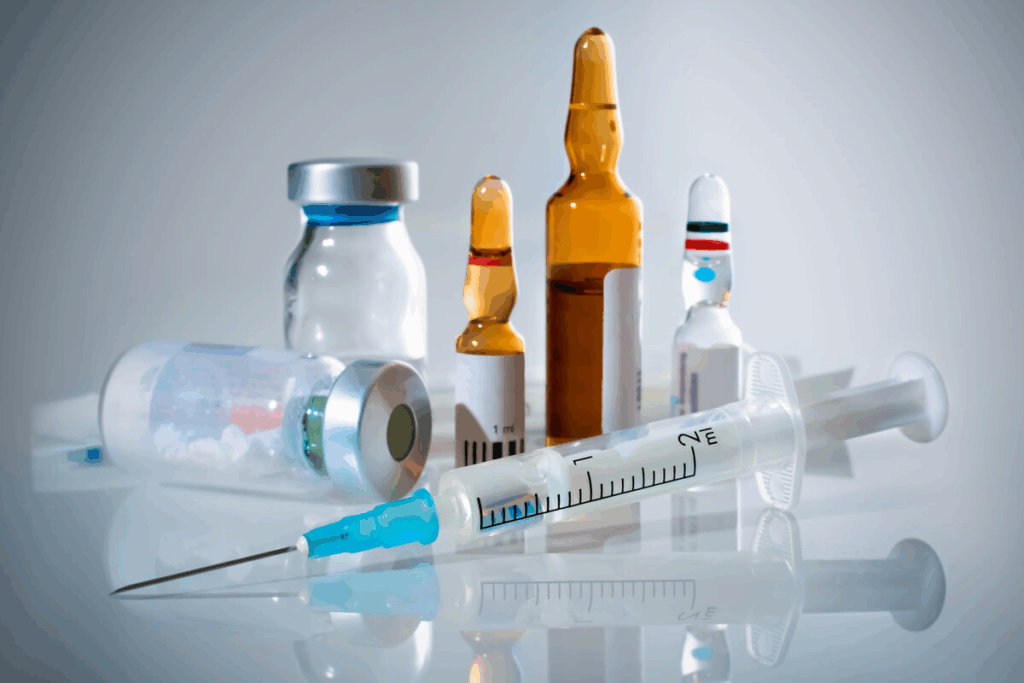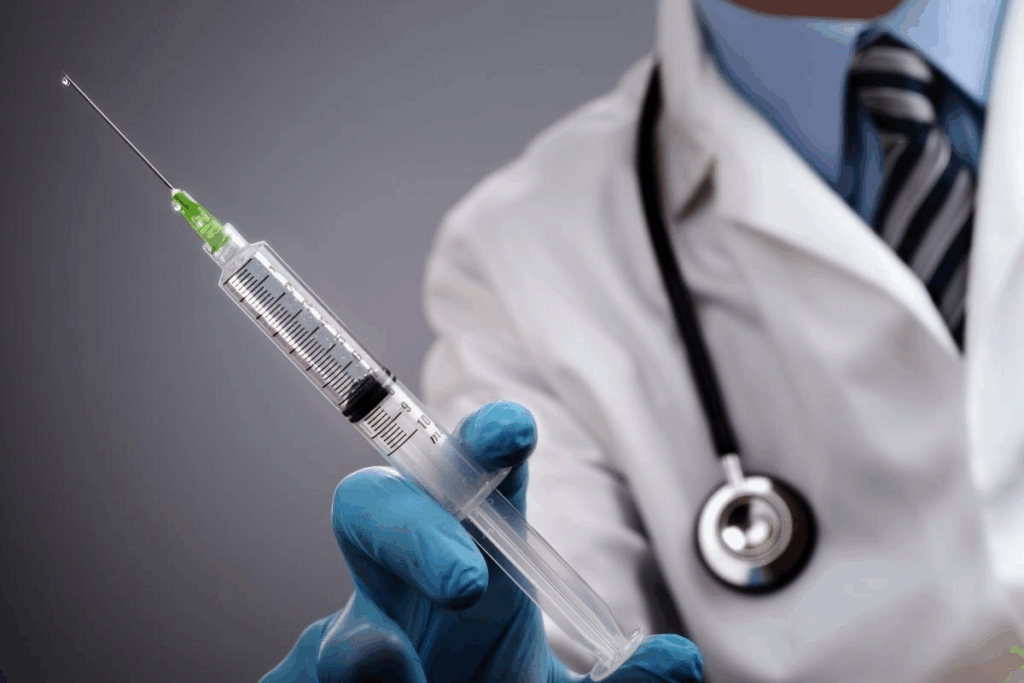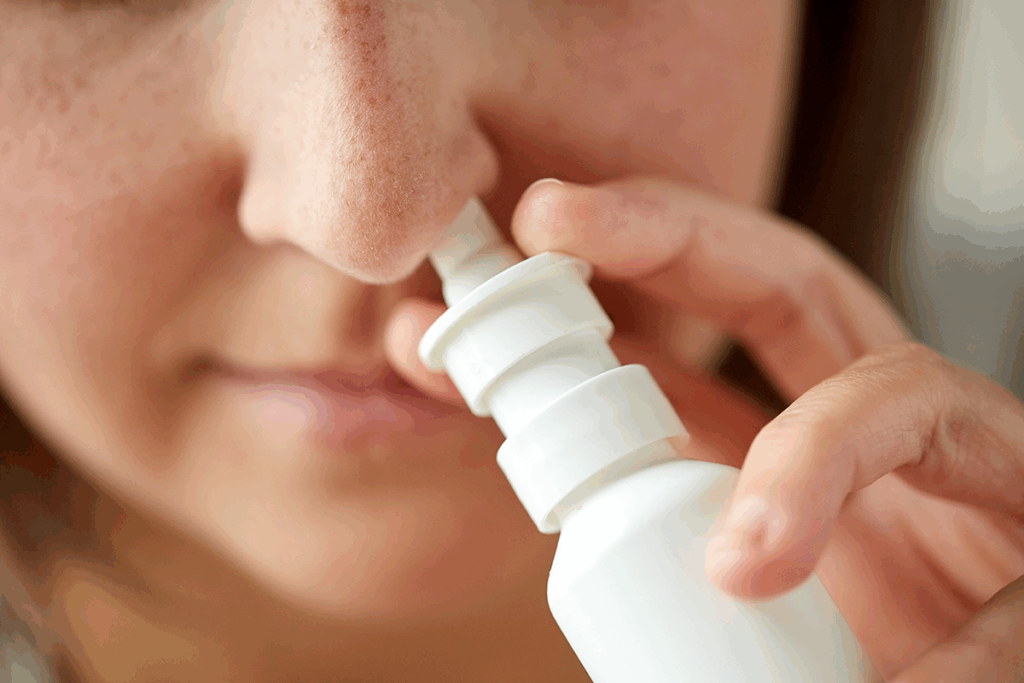
Sinusitis, or a sinus infection, happens when the sinuses’ lining gets inflamed. This leads to symptoms like congestion, facial pain, and headaches. Many people think antibiotics are the answer when they feel these symptoms. But, most sinus infections are caused by viruses and get better on their own in 7-10 days. If you have a sinus infection diarrhea, when do you need antibiotics? Learn the signs distinguishing viral from bacterial sinusitis.
At Liv Hospital, figuring out if you need antibiotics can be tough. Antibiotics work only on bacterial infections, not viral ones. Taking antibiotics when not needed can cause problems like allergic reactions. It also helps bacteria become resistant to antibiotics.
Knowing when antibiotics are really needed is important. We’ll look at the differences between viral and bacterial sinusitis. We’ll also talk about how to ease symptoms.

Sinus infections are a big health issue, hitting about 35 million people in the US every year. We’ll explore what causes these infections and how many people get them. We’ll also look at the symptoms and the number of cases each year.
A sinus infection, or sinusitis, happens when the sinuses get inflamed or infected. This can be due to viruses, bacteria, allergies, or other factors. The sinuses are air-filled spaces in the skull that make mucus. This mucus helps filter and humidify the air we breathe.
When the sinuses get blocked, mucus builds up. This creates a perfect spot for germs to grow. Knowing if a sinus infection is from a virus or bacteria is key to finding the right treatment.
Sinusitis symptoms can differ based on the cause and how bad the infection is. Common signs include nasal congestion, facial pressure or pain, headache, postnasal drip, and cough. Some people might also have bad sinus symptoms like thick nasal discharge, a reduced sense of smell, or a sore throat.
These symptoms happen because of mucus buildup and the body’s fight against the infection. This leads to sinus drainage symptoms that can really mess up your day.
Sinus infections are a big deal, with about 35 million cases in the US every year. This makes sinusitis one of the top health issues, causing a lot of healthcare costs and lost work time. Knowing how widespread the problem is shows why we need good ways to prevent and treat it.

It’s important to know the difference between viral and bacterial sinus infections. Most sinus infections are caused by viruses. They usually get better on their own in two weeks without antibiotics.
Viral sinus infections often start with a cold. They usually get better in 7-10 days. Symptoms include nasal congestion, facial pressure, and headaches.
To help with these symptoms, try nasal irrigation and steam therapy. These methods can reduce nasal inflammation and help with drainage. This is key for how to get rid of nasal inflammation.
Bacterial sinus infections need antibiotics and have more severe symptoms. Look for signs like symptoms lasting over 10 days, severe facial pain, and thick, yellow nasal discharge. Knowing these signs is important for figuring out the best way to reduce sinus pressure and when to use antibiotics.
The difference between viral and bacterial sinus infections affects treatment. Using antibiotics too much for viral infections can lead to antibiotic resistance. This is a big health problem.
By correctly identifying the cause of sinusitis, doctors can give the right treatment. This reduces the chance of complications and helps patients get better faster.
Antibiotics and sinus infections have a complex relationship. We often wonder if antibiotics are needed for sinus infections. To answer this, we must understand how antibiotics work and what sinus infections are.
Antibiotics fight bacterial infections by killing or stopping bacteria from growing. They are vital in medicine, saving lives by treating bacterial infections. But, their success depends on the infection type.
Key Points About Antibiotics:
Most sinus infections are viral, not bacterial. Antibiotics can’t fight viruses because they target bacteria. Using them for viruses doesn’t help and can make bacteria resistant to antibiotics.
Using antibiotics too much or wrongly makes bacteria resistant. This makes future infections harder to treat. It’s a big health issue that needs careful antibiotic use.
Studies show about 70% of sinus infections get better without antibiotics. This highlights the need to know if an infection is bacterial or viral to avoid antibiotics.
Condition | Antibiotic Use | Resolution Rate |
Viral Sinus Infection | Not Recommended | 70% resolve without antibiotics |
Bacterial Sinus Infection | Recommended | Higher resolution rate with antibiotics |
Knowing about sinus infections and antibiotics helps us manage them better. It also helps fight antibiotic resistance.
Antibiotics aren’t always the right choice for sinus infections. But, there are times when they are needed. We suggest antibiotics if symptoms get worse or last too long, showing a bacterial infection. Knowing when to see a doctor is key.
There are signs that point to the need for antibiotics in sinus infections. These include:
If symptoms of a sinus infection last over 10 days, it might be a bacterial infection. We tell patients to see a doctor if they have:
At this stage, a doctor can decide if antibiotics are needed.
Certain severe symptoms can mean a bacterial sinus infection. These include:
If you have these symptoms, it’s important to see a doctor about sinus infection to find the best treatment.
Understanding these signs helps patients decide when to seek medical help. We stress the importance of not overusing antibiotics. This fight against antibiotic resistance ensures these medicines work when they’re really needed.
Antibiotics for sinusitis can upset the balance of gut bacteria, causing diarrhea. When we give antibiotics for sinus infections, we must think about how they might affect our patients’ health. This includes their stomach health.
Antibiotics target harmful bacteria but can also harm good bacteria in our gut. This imbalance, or dysbiosis, can lead to stomach problems like diarrhea. The gut and sinuses are connected, so problems in one can affect the other.
Studies show that people with sinus infections treated with antibiotics face an 80% higher risk of diarrhea than those not treated. This shows we need to think carefully before giving antibiotics. The risk of diarrhea can change based on the antibiotic, how long it’s used, and the patient’s health.
Antibiotic Type | Risk of Diarrhea | Duration of Treatment |
Penicillin | Moderate | 7-10 days |
Macrolides | Low | 5-7 days |
Fluoroquinolones | High | 5-7 days |
One serious problem with antibiotics is Clostridioides difficile (C. difficile) infection. C. difficile can cause diarrhea to severe colon inflammation. Antibiotics can let C. difficile grow too much, leading to infection. We must watch for signs of C. difficile infection, like severe diarrhea and fever, when using antibiotics for sinus infections.
In summary, antibiotics are key for treating sinus infections, but we must consider the risks. These include diarrhea and serious problems like C. difficile infection. By understanding these risks and taking steps to reduce them, we can better care for our patients.
The misuse of antibiotics has led to a big increase in antibiotic resistance. This is a big worry for doctors. As we try to treat sinus infections, the need to fight antibiotic resistance grows.
Antibiotic resistance happens when bacteria can’t be killed by antibiotics anymore. This often comes from using antibiotics too much or the wrong way. For sinus infections, using antibiotics too much for viral infections makes them less useful for bacterial ones.
Prescribing antibiotics when not needed speeds up antibiotic resistance. This makes antibiotics less effective for future infections. It also puts patients at risk of side effects and complications. Many antibiotic prescriptions for sinus infections are not needed, making the problem worse.
The effects of antibiotic resistance are huge. It harms not just patients but also public health. As bacteria get stronger, treating infections gets harder. This leads to longer illnesses, higher healthcare costs, and more risks.
The future of antibiotic resistance is scary. If we don’t stop it, simple infections could become deadly again. It’s key to use antibiotics wisely and only when really needed. By knowing when antibiotics are truly needed for sinus infections, we can fight resistance and keep these medicines working for the future.
When treating sinus infections, we must think about the big picture. By using antibiotics more carefully, we can keep them working and protect everyone’s health.
There are many ways to treat sinus infections without antibiotics. Most of the time, these infections get better by themselves. These treatments can help ease symptoms and aid in recovery.
OTC pain relievers and decongestants can help with sinus infection symptoms. Medicines like acetaminophen or ibuprofen can ease headaches and facial pain. Decongestants, in spray or liquid form, can clear up nasal congestion, making breathing easier.
It’s important to follow the directions on these medications. Using them for too long can cause side effects. For example, using nasal sprays too much can lead to more congestion.
Nasal irrigation uses a saline solution to clean out the nasal passages. You can use a neti pot or a squeeze bottle. Steam therapy involves breathing in warm, moist air to loosen mucus and reduce congestion.
Both methods can help with sinus symptoms. They work well together with other treatments.
Rest and staying hydrated are key in managing sinus infections. Rest helps your body fight the infection. Drinking lots of water helps thin out mucus, making it easier to get rid of.
Drink plenty of water, clear broths, or electrolyte-rich drinks to stay hydrated. Avoid caffeinated and alcoholic drinks, as they can dry you out.
In some cases, you might need prescription nasal steroids to reduce inflammation. These are usually prescribed for severe or ongoing symptoms.
Nasal steroids can shrink swollen nasal passages, improve drainage, and reduce congestion. They are often used with other treatments for better relief.
To prevent sinus infections, we need to take several steps. These include keeping clean, managing allergies, and staying away from things that can trigger infections. By doing these things, we can lower the chance of getting sinusitis and its risks.
Washing your hands often is key to stopping infections that can cause sinusitis. Also, try not to be too close to people who are sick. This helps stop the spread of viruses and bacteria.
Using allergen-proof bedding and avoiding known allergens can help with allergies. Also, stay inside when the air is bad and use air purifiers. This helps avoid environmental triggers.
Living a healthy lifestyle, like eating well and exercising, boosts your immune system. It’s also important to avoid smoke and air pollution. These can irritate your sinuses and raise the risk of infection. By following these steps, we can effectively prevent sinus infections.
Not always. Most sinus infections are caused by viruses and get better on their own in 7-10 days. Antibiotics work only against bacteria.
Bacterial infections last longer than 10 days and symptoms get worse. Look for signs like high fever, facial pain, or thick, colored nasal discharge.
Symptoms include nasal congestion, facial pain, headache, and thick nasal discharge. You might also have a cough, fever, bad breath, or a reduced sense of smell.
Sinus infections themselves don’t usually cause diarrhea. But, antibiotics for sinus infections can upset your gut, leading to diarrhea and other stomach issues.
To prevent sinus infections, practice good hygiene, manage allergies, and boost your immune system. Also, avoid smoke and air pollutants.
See a doctor if your symptoms last more than 10 days or get worse. Look out for high fever, facial pain, or trouble breathing.
Treatments include over-the-counter pain relievers and decongestants, nasal irrigation, and steam therapy. Rest and hydration are also key. Sometimes, doctors may prescribe nasal steroids.
Yes, overusing antibiotics leads to antibiotic resistance, a big health problem. It’s important to use antibiotics wisely.
To reduce sinus pressure, try nasal irrigation, steam inhalation, and decongestants. Stay hydrated and get plenty of rest to help symptoms.
You need antibiotics for severe sinus infections, those lasting over 10 days, or showing signs of bacterial infection. Look for thick, colored nasal discharge, facial pain, or high fever.
Subscribe to our e-newsletter to stay informed about the latest innovations in the world of health and exclusive offers!
WhatsApp us